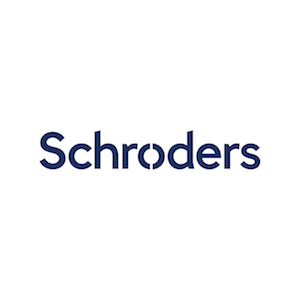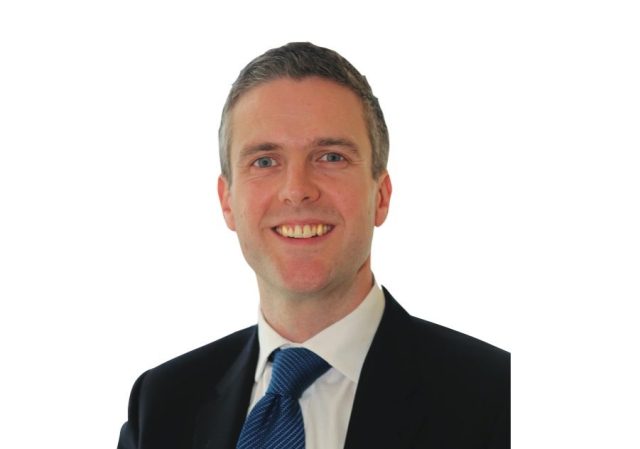Schroders Head of Strategic Research Duncan Lamont: How Should Investors Respond To The Stock Market’s Dwindling Status?
August 2023 – This is an expert commentary on decreasing number of companies that are publicly-listed – How Should Investors Respond To The Stock Market’s Dwindling Status by Duncan Lamont who is the Head of Strategic Research at Schroders.
 Founded in 1804, Schroders is one of Europe’s largest independent investment management firms by assets under management. As at 30 June 2022, assets under management were £773.4 billion (€898.4 billion; US$939.2 billion). Schroders has continued to deliver strong financial results. It has a market capitalisation of circa £7.7 billion and employs over 5,800 people across 38 locations. Schroders offers innovative products and solutions across their five business areas of solutions; institutional; mutual funds; private assets & alternatives; and wealth management. Clients include insurance companies, pension schemes, sovereign wealth funds, endowments and foundations. They also manage assets for end clients as part of their relationships with distributors, financial advisers and online platforms.
Founded in 1804, Schroders is one of Europe’s largest independent investment management firms by assets under management. As at 30 June 2022, assets under management were £773.4 billion (€898.4 billion; US$939.2 billion). Schroders has continued to deliver strong financial results. It has a market capitalisation of circa £7.7 billion and employs over 5,800 people across 38 locations. Schroders offers innovative products and solutions across their five business areas of solutions; institutional; mutual funds; private assets & alternatives; and wealth management. Clients include insurance companies, pension schemes, sovereign wealth funds, endowments and foundations. They also manage assets for end clients as part of their relationships with distributors, financial advisers and online platforms.
How Should Investors Respond To The Stock Market’s Dwindling Status?

Duncan Lamont: Companies are abandoning the stock market in their droves, yet this is the main place where savers have put their money for long-term growth.
In 1996, there were over 2,700 companies on the main market of the London Stock Exchange. At the end of 2022, this had collapsed to 1,100 – a 60% reduction.
The figures look even worse when viewed over a longer time frame. There has been a near-75% fall in the number of UK-listed companies since the 1960s (see chart below).
Number of Listed Companies in UK, US & Germany:

1) The stock market demise has been a global trend

Duncan Lamont: Individual countries like to beat themselves up about their failings on this front – self-flagellation is a popular British pastime – but the reality is that it has been a global trend.
” Germany has shed more than 40% of its public companies since 2007. Even the US, often admired from afar, has experienced a 40% drop since 1996 “
Europe’s downturn started later, but Germany has shed more than 40% of its public companies since 2007. Even the US, often admired from afar, has experienced a 40% drop since 1996. This is even after allowing for the US boom in initial public offerings (IPOs) in 2021.
2) What has happened?

Duncan Lamont: Too few companies have wanted to join the stock market, and a steady stream have left, mainly after being bought.
” Too few companies have wanted to join the stock market “
In the US, over 300 companies a year, on average, joined the stock market between 1980 and 1999. Since, there have been only 129 a year. In the UK, the number of new listings dropped after the financial crisis and has failed to pick up meaningfully since. Money raised in UK IPOs has also been on a steady downtrend. For UK-based companies this trend set in in the early 1990s. For overseas companies, it has been in the past ten years.
Even those that have joined the stock market have waited longer before doing so. The average age of a US company on IPOs increased from eight years in the two decades until 1999 to 11 years since.
Money Raised by Listed Companies in UK Main Market:

3) Stock market investors fail to access a large segment of companies
Duncan Lamont: The net effect of all of this is that the stock market now provides exposure to a dwindling proportion of the corporate universe. For example, fewer than 15% of US companies with revenue over US$100 million are listed on the stock market. Ordinary savers are largely deprived of the opportunity to invest directly in the rest.
” fewer than 15% of US companies with revenue over US$100 million are listed on the stock market “
United States Listed Companies with > $100 Million Revenue:

4) Why such change?
Duncan Lamont: There are two main explanations. First, the cost and hassle of being a public company has increased. Recent research has found that the average UK company’s annual report has increased in length by 46% in the past five years. For FTSE 100 companies it now stands at 147,000 words and 237 pages.
” the cost and hassle of being a public company has increased “
This trend has been global and has also happened in the “lighter-touch” regulatory markets such as London’s Alternative Investment Market (AIM). The average number of words in an AIM company’s annual results is understandably much lower, at 46,000. However, the rate of increase here has been even higher than among larger companies, has increased by 51% in the past five years. Such “door-stopper” reports take time and money to produce.
Other issues counting against public markets in the cost-benefit trade-off include loss of control, unwanted transparency, perceptions around short-termism – and more (as below).
Listed Companies Tradeoffs:

The other important reason why companies have turned their back on a stock market listing is that another source of financing has become more widely available. One that comes without many of these perceived drawbacks: private equity. Private equity has grown from a US$500-600 billion industry in the early 2000s to be worth more than US$7.5 trillion in 2022. With this growth, the size of the cheques the industry can write has soared. It can now finance companies to a much later stage of their development than before.
When Google (now Alphabet) joined the stock market in 2004, it had only raised US$25 million from private markets beforehand. Today’s biggest unicorns can raise tens of billions of dollars. Would stock market investors get the chance to invest in Google at such an early stage today? Unlikely.
” Companies are not only attracted to private equity for the money. The best private equity investors also have deep sector expertise “
Companies are not only attracted to private equity for the money. The best private equity investors also have deep sector expertise and take a much more hands-on approach to driving value. They are sought after by investors and companies alike.
5) This is a problem for private investors

Duncan Lamont: The stock market is the cheapest and most accessible way that savers can participate in the growth of the corporate sector. Private equity has historically been the stomping ground of large institutional investors – not ordinary savers.
But, with companies choosing to stay private for longer, investors who focus solely on the stock market are missing out on an increasingly large part of the global economy. Many of these companies are in high-growth, disruptive industries. If high-quality companies find little reason to go public, the risk is that over time the quality of the public markets deteriorates. Should this occur, returns from public equity markets in aggregate could move structurally lower relative to private markets.
” with companies choosing to stay private for longer, investors who focus solely on the stock market are missing out on an increasingly large part of the global economy “
Where able, investors will need to broaden their scope and embrace private assets to avoid missing out. But to date, this isn’t something which has been easy for ordinary savers to do. It is they who stand to bear the brunt of these developments.
6) A regulatory hope

Duncan Lamont: In the UK and Europe, regulators and providers have responded by establishing new investment vehicles known as the European Long-term Investment Fund (ELTIF) and for UK investors the Long-term Asset Fund (LTAF). Both aim to give individual savers access to a wider range of investments, including private markets.
While this should be welcomed, we should not lose sight of the other area where focus is needed: improving the appeal of a stock market listing relative to private ownership.
” focus is needed: improving the appeal of a stock market listing relative to private ownership “
In the UK, this has been long-recognised as an issue – as long ago as in 2012, the Kay review highlighted the ways the UK equity market was failing to serve investors and companies – but it has recently been gathering a head of steam. We have had the Hill Review in 2021, the Edinburgh reforms in 2022, and a number of recent proposals for how to revitalise interest from pension funds and insurance companies in equity markets.
This is an expert commentary on decreasing number of companies that are publicly-listed by Duncan Lamont, who is the Head of Strategic Research at Schroders.
Important Information
This document is intended to be for information purposes only and it is not intended as promotional material in any respect nor is it to be construed as any solicitation and offering to buy or sell any investment products. The views and opinions contained herein are those of the author(s), and do not necessarily represent views expressed or reflected in other Schroders communications, strategies or funds. The material is not intended to provide, and should not be relied on for investment advice or recommendation. Any security(ies) mentioned above is for illustrative purpose only, not a recommendation to invest or divest. Opinions stated are valid as of the date of this document and are subject to change without notice. Information herein and information from third party are believed to be reliable, but Schroder Investment Management (Hong Kong) Limited does not warrant its completeness or accuracy.
Investment involves risks. Past performance and any forecasts are not necessarily a guide to future or likely performance. You should remember that the value of investments can go down as well as up and is not guaranteed. You may not get back the full amount invested. Derivatives carry a high degree of risk. Exchange rate changes may cause the value of the overseas investments to rise or fall. If investment returns are not denominated in HKD/USD, US/HK dollar-based investors are exposed to exchange rate fluctuations. Please refer to the relevant offering document including the risk factors for further details.
This material has not been reviewed by the SFC. Issued by Schroder Investment Management (Hong Kong) Limited. Schroder Investment Management (Hong Kong) Limited Level 33, Two Pacific Place, 88 Queensway, Hong Kong www.schroders.com.hk
About Schroders
Founded in 1804, Schroders is one of Europe’s largest independent investment management firms by assets under management. As at 30 June 2022, assets under management were £773.4 billion (€898.4 billion; US$939.2 billion). Schroders has continued to deliver strong financial results. It has a market capitalisation of circa £7.7 billion and employs over 5,800 people across 38 locations. Schroders offers innovative products and solutions across their five business areas of solutions; institutional; mutual funds; private assets & alternatives; and wealth management. Clients include insurance companies, pension schemes, sovereign wealth funds, endowments and foundations. They also manage assets for end clients as part of their relationships with distributors, financial advisers and online platforms.. Visit: www.schroders.com.hk
Sign Up / Register
Caproasia Users
- Manage $20 million to $3 billion of assets
- Invest $3 million to $300 million
- Advise institutions, billionaires, UHNWs & HNWs
Caproasia Platforms | 11,000 Investors & Advisors
- Caproasia.com
- Caproasia Access
- Caproasia Events
- The Financial Centre | Find Services
- Membership
- Family Office Circle
- Professional Investor Circle
- Investor Relations Network
Monthly Roundtable & Networking
Family Office Programs
The 2025 Investment Day
- March - Hong Kong
- March - Singapore
- July - Hong Kong
- July - Singapore
- Sept- Hong Kong
- Sept - Singapore
- Oct- Hong Kong
- Nov - Singapore
- Visit: The Investment Day | Register: Click here
Caproasia Summits
- The Institutional Investor Summit
- The Investment / Alternatives Summit
- The Private Wealth Summit
- The Family Office Summit
- The CEO & Entrepreneur Summit
- The Capital Markets Summit
- The ESG / Sustainable Investment Summit


























